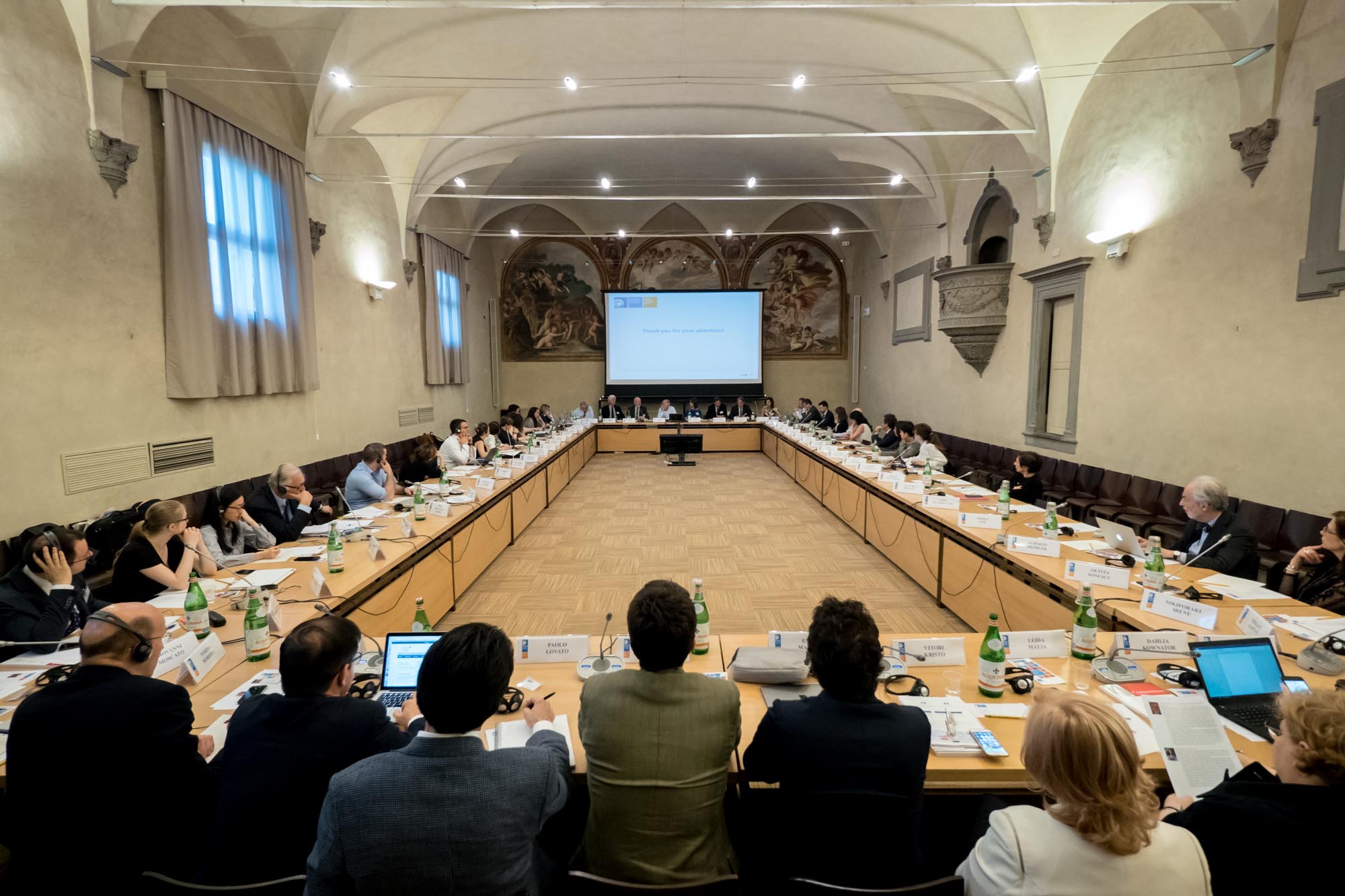Read more
Uncategorized
Watch Our Interview with Hal Varian
On Thursday and Friday, 22-23 March, FSR C&M together with the FCP and CMPF held its annual Scientific Seminar, which this year was dedicated to competition, regulation and pluralism in the online world.
The Florence Competition Programme (FCP) and Assonime jointly organised a workshop. The event aimed to gather academics, practitioners, officials from National Competition Authorities (NCAs) and industry representatives to discuss the consequences of the rulings of the Court of Justice of the European Union (CJEU) in Cartes Bancaires and in Intel on competition law enforcement in EU Member States.
During the last decade, the pros and cons of an impact-based approach compared to a form-based approach in the application of Articles 101 and 102 TFEU have been one of the major topics of debate in EU competition law. For the application of Article 101 TFEU, an analysis based on the actual or potential impact on the market is now arguably the rule. In Cartes Bancaires, in fact, the CJEU has clarified that the concept of restriction of competition by object must be interpreted restrictively and that the economic and legal context has to be assessed before classifying an agreement as restrictive by object.
As to Article 102 TFEU, since the publication of the European Commission Guidance Paper on exclusionary practices in 2009, different views have emerged both within the Commission and the CJEU on whether an evolution of the criteria of traditional case-law towards a more effect-based approach was really needed. Concerns have been expressed in terms of loss of legal certainty. In the recent Intel ruling, the CJEU has indicated a way forward, clarifying that an impact-based approach to the protection of competition still allows to consider presumptively abusive some well circumscribed types of conduct, provided that due consideration is always given to the relevant economic context and the parties may prove that the conduct does not have an anticompetitive impact.
Both Cartes Bancaires and Intel might lead to radical changes for national courts and National Competition Authorities (NCAs). At the national level, in fact, some authorities have welcomed the more economic approach, while others have been traditionally reluctant to introduce a more effect- based analysis.
The workshop aimed to discuss the consequences of these landmark rulings on national competition law enforcement. First, the workshop assessed to what extent Intel leads to a change in the pattern of enforcement vis-à-vis rebates at the national level. Secondly, the workshop analysed the consequences of Cartes Bancaires on the assessment of vertical agreements. Finally, the last session was devoted to a discussion among practising lawyers and economists on what the assessment of the economic and legal context implies for the application of Articles 101 and 102 in practice.
See here the policy brief, summarising the main points raised at the workshop.
PRESENTATIONS
- Exclusive dealing and loyalty rebates after Intel by Pablo Ibáñez Colomo
- Vertical agreements after Cartes Bancaires: any change on the horizon? by Federico Marini Balestra
- The assessment of the legal and economic context in practice: challenges and open issues by Ginevra Bruzzone
- UNCTAD’S Work in competition law and policy by Teresa Moreira
- Remarks on the ECJ judgement on Intel by Miguel de la Mano
- Vertical Agreements After Cartes Bancaires by Giorgio Monti

